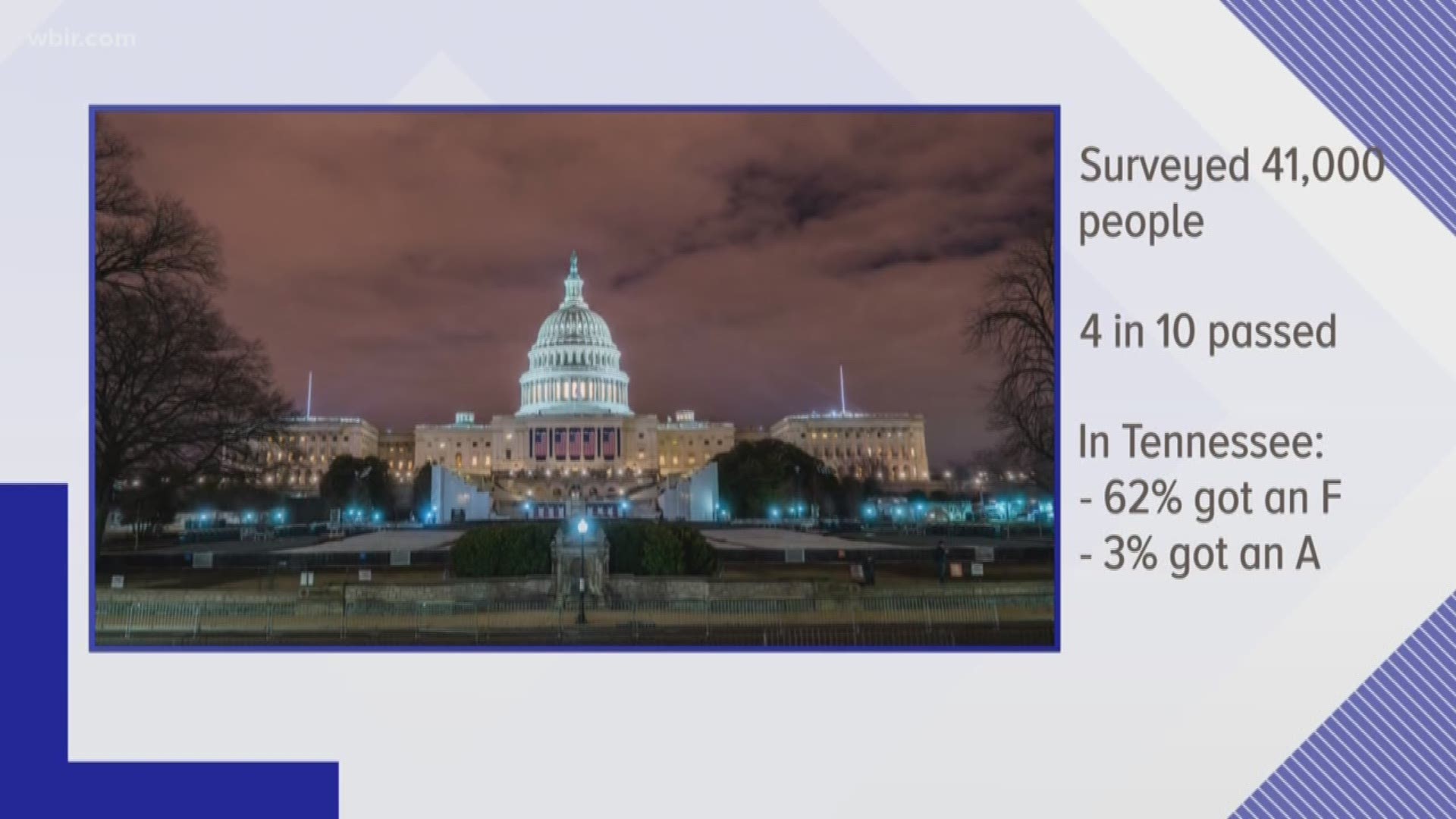Update (9/17/19): This Constitution Day, more East Tennesseans will become U.S. citizens as they participate in a U.S. naturalization ceremony at Blount Mansion.
Tuesday's new citizens will have spent months going through the legal immigration process, which includes having to pass the citizenship test.
So, we wanted to bring this one back to ask, do you think you have the basic level of civics knowledge necessary to pass the test?
Try your hand at in the link below.
Original Story (2/18/19): Ever feel like you've taken American history for granted? Chances are you might be right.
A study by the non-profit educational leadership organization known as The Woodrow Wilson National Fellowship Foundation celebrated President's Day the best way it knew how: by presenting a study that suggests our understanding of basic American history and government is generally spotty, particularly with younger generations.
The foundation conducted a survey with 41,000 Americans adults across all 50 states and Washington D.C. by giving people a short multiple choice test to determine if they could demonstrate the basic level of civics understanding needed to pass a U.S. Citizenship exam.
If you'd like to try your hand at the 19-question test, you can take it at this link to see how you'd fare.
The results were pretty grim. Every state except for Vermont saw a majority of people fail the test, and only 27 percent of those under age 45 were able to pass.
Nationally -- only 4 in 10 Americans passed.
Vermont was the only state to have a majority of people take the test and pass at 53 percent.
Tennessee ended up on the lower half of the states with 38 percent of people passing.
The lowest was Louisiana -- where just 27 percent were able to pass.
“Unfortunately, the Woodrow Wilson Foundation has validated what studies have shown for a century: Americans don’t possess the history knowledge they need to be informed and engaged citizens,” WW Foundation President Arthur Levine said. "This requires a fundamental change in how American history is taught and learned to make it relevant to our students lives, captivating and inclusive to all Americans.”
You may also like:

